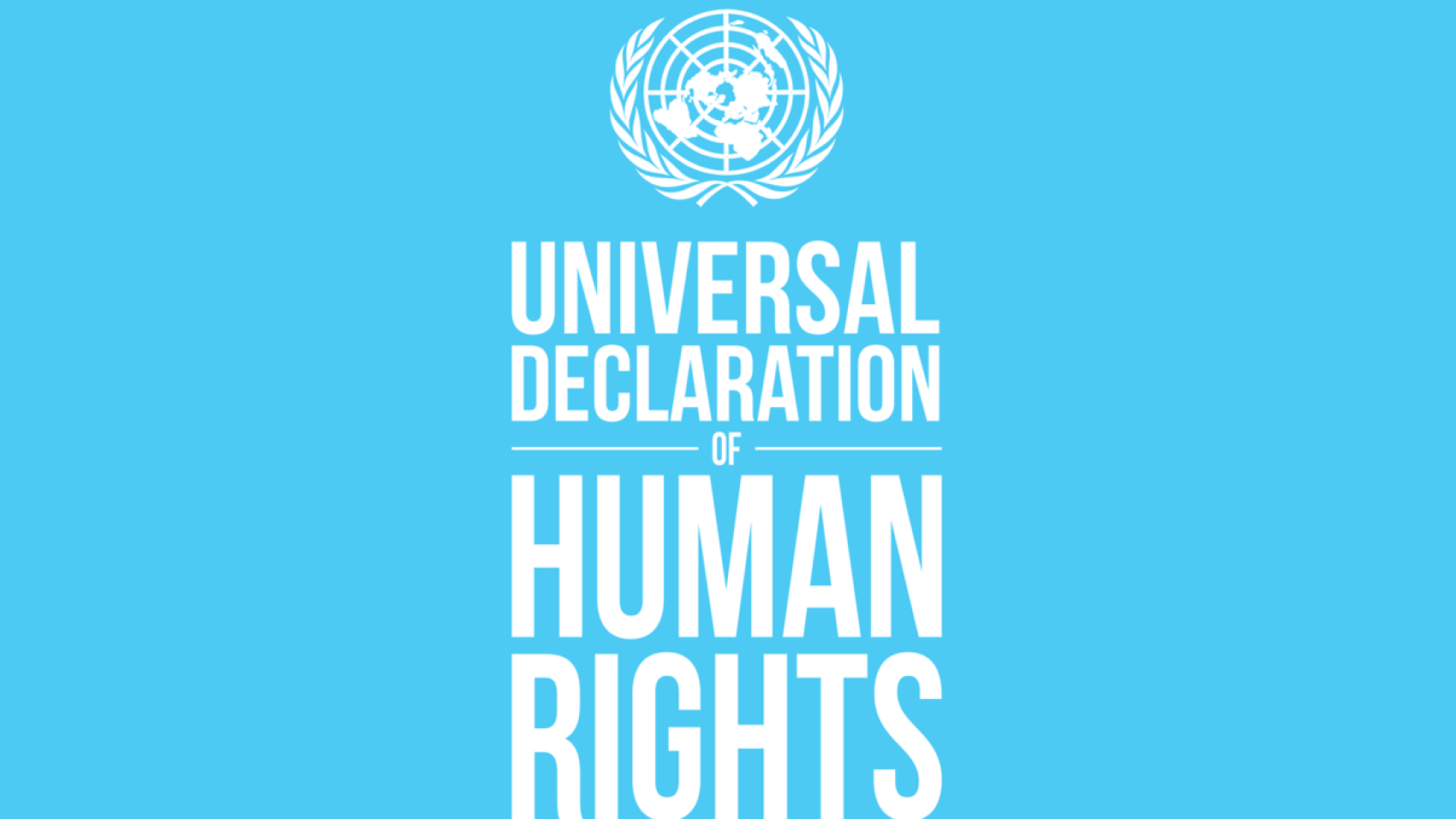By J. Natasha Gooneratne
Areas of focus: colonization, reparations, accountability, social, economic & cultural rights
This year marks the 75th anniversary of the Universal Declaration of Human Rights (UDHR) and for most part, the Human Rights Regime has achieved what most analysts believe to be a “keeping in check” of those states who need restrictive parameters most. The usual suspects as it were. As such, the emphasis within the system of international law and order, and perhaps of the UN Charter itself, is a revisitation of human rights tragedies scattered over time, and a pacta sunt servanda multilateral formulation of non-reoccurrence, accountability and reparation.
Yet somehow, the mother of all tragedies within the system, remains scantly touched, despite countless calls over time from the Global South that addressing this core issue remains fundamental for maintaining equitable international order. That being, the issue of colonization by imperial powers.
There is in no way a special requirement of retroactivity in order to access the legal norms that were flagrantly violated by Eurocentric powers during these periods. One may argue that the current international law and human rights law regimes are contemporary, and are therefore ill-suited to examine the historical contexts of colonization. But this argument hardly holds considering that the contemporary regimes of international law are founded in customary law, spanning the trajectory of colonization. Furthermore, if the technicalities of dates are to be utilized, 1990 may be a vital one. It was the year Namibia gained independence from apartheid South African rule. So really, colonization may have the favour of being considered contemporary.
Violations of customary law; breaching of treaty obligations that were mendaciously agreed to; torture; slavery; violations of cultural, economic and social rights; natural resources plundered, repressive and purposeful policies based on a belief of Eurocentric race superiority, and a range of programs, including divide and rule, that continue to cause irreparable social and economic damage in these countries even today. While the social indicators are better known, (having caused divisions across Africa, namely that of Rwanda and in South Asia in countries like India and Sri Lanka to name a few), the economic impacts are still at a dramatically unassessed level. It could perhaps be fair to hypothesize that the label of ‘developing’ countries may have never been bestowed upon what we now call the Global South, had colonization never occurred. But perhaps this is too far of an assumption to contemplate. Instead we should assess the limited, but telling numerical data we have at our disposal.
The economic impacts of Colonization on the Global South
Research by economist Utsa Patnaik, published by Columbia University Press in 2018 details that as much as US $45 trillion may have been pilfered from India by Britain between 1765 to 1938[1]. The figure is impactful when assessing India’s current foreign debt which roughly stands at US $ 617 Billion. The pre- British India traded in silver with other nations that were drawn to her rich textiles, spices and grains. But under British rule, the tax system imposed by the East India Company meant India would now be paying for the goods bought by Britain. Patnaik’s study also estimates that a re-export system that Britain established as a result of the taxation assisted in ‘finance (of) a flow of imports from Europe, including strategic materials like iron, tar and timber, which were essential to Britain’s industrialization.’[2] In that sense, India’s deep economic loss was Britain’s gain, but the data presented by Patnaik is not the exception, but the reoccurring rule woven through colonized states. The rough estimation in the Caribbean region is over US $ 9 trillion[3], for Namibia which experienced colonial era genocidal massacres by German settlers the figure of expectation was 478 billion euros, compensation for slavery in the United States is estimated at US $ 12 Trillion, and the list goes on.
The staggering monetary figures are important to note because they provide a framework within which to understand colonization in ongoing terms; to weigh-in in proportional requisites how much was taken from colonized states, and, perhaps more crucially, in fully understanding the root causes of why the developing world is still ‘developing’.
Acceptance & Restitution: How far along are we?
On the eve of the UDHR’s 75th anniversary, one may consider the current discourse on human rights and its competing actors, and conclude that there remains an imbalanced and erred viewpoint here. On the one hand, Global North nations are often perceived as altruistically advancing the human rights cause, encouraging Global South counterparts to follow suit, leading and steering discussion, agenda and norm setting exercises at intergovernmental human rights mechanisms. But on the other side of that coin, discussions that center on the requirement of economic stabilization for global south countries are often met with harsh indifference, including to the point of strongarming and postponing outcomes at intergovernmental working groups that are viewed as developing-country friendly, such as the UN Working Group on the Right to Development or the Development Agenda Group of WIPO.
The causality of this duplicity can perhaps be twofold, with economic rights, often adjourned under the banner of collective rights historically ill-receiving the recognition it deserved, from most western states. The deliberations covering the treaty on economic social and cultural rights versus that of civil and political rights are an unfortunate case in point. As noted by the UN Office of the High Commissioner for Human Rights “the UDHR, ratified in 1948, makes no distinction between these rights. (Although) a distinction later appeared in the context of cold war tensions between the East and West. This led to the negotiation and adoption of two separate covenants—one on civil and political rights, and another on economic, social and cultural rights”.[4] The other reasoning, being more simplistic, so as to not have any onus or accountability within a discussion that centered on the global south and economic rights, given the likelihood of all root causes leading back to colonial delinquencies.
In fact the latter, may perhaps be the factor behind the surprising delay on the formulation of a mechanism of restitution for colonization; even to the embarrassing point of language. This means that while former imperial powers are willing to return a limited number of cultural objects including artifacts to former colonies, the process of considering real reparations or even acknowledging the violations and very enterprise of colonization still remains awkwardly out of bounds verbally, and in written form. Perpetuating a growing notion among former colonizing powers that avoidance of such language somehow alters the confines of the culpability. For instance, analysts have explained that Germany’s initial hesitancy toward addressing the Namibian claim, and the perhaps consequent decision, to label any monetary exchange a gesture and not reparation was due to a “grave concern that this would give rise to a rule.”[5]
Conclusion: Navigating difficult questions and realities
But criticism by analysts have not been limited to the linguistical altercations alone. The qualitative demeanor of artifact returns have also been under scrutiny. A case in point may be France’s repatriation of 26 artefacts to Benin last year, viewed in relation to the estimation that the country holds close to 90,000 stollen artefacts from Africa, or the United Kingdom’s decision to return 7 stollen artefacts to India this year. This is not to say that such gestures have not been appreciated by the receiving countries, in contrast such returns have been met with diplomatic warmth and welcome reception by both authorities and publics of the Global South, but any analyst, aligned to any political bloc, must be willing to ask the difficult questions of, a) If it is enough in relation to the proportionality of what colonized countries endured under colonization? And b) If it is enough in relation to the structural political, civil, economic, cultural and social fractures that colonization caused and perpetuated in these countries? And if the answer is no, then what can an equitable and meaningful reparation, or gesture look like?
Perhaps the issue is that at the root of the problem lies a duplicity of values that prevents formerly colonized states from ever receiving the restitutive justice they require to exit the never ending cycle of monetary dependence. If true political will is attached to the championing of human rights, as it is portrayed by the championing states, then the way forward to reparations can be disentangled from complexities of linguistical avoidance or discounting the work of analysts such as Patnaik. If reparatory payments in the trillion range appear non-negotiable, then surely debt forgiveness in the billion range should be possible? If the return of all stollen artefacts causes too much of a toll on the cultural and social architecture of a once imperial state, then surely the easing of asylum restrictions to allow for a relative flow of economic migrants from once colonized states should be permitted? Or perhaps more altruistic onus toward hosting refugees from former colonized states? In fact the UNHCR notes that 74% of refugees are hosted in low and middle income countries; with Turkiye hosting 3.7 million people, Colombia 2.5 million, Germany 2.2 million, Pakistan 1.5 million, and Uganda 1.5 million.[6] Save Germany, the other 4 nations on this top 5 compilation consists of mainly global south states, that among a myriad of national strains, also have the complicated manoeuvring of extreme foreign debt, post COVID-19.
The concluding point being, that whatever the package formulation of restitutive justice, the power to exert change still appears to lie in the hands of the (once) colonizer. And in that sense, perhaps the status quo of North and South, economically at least, is still awaiting its decolonization.
[1] Hickel, Jason. “How Britain Stole $45 Trillion From India.” How Britain Stole $45 Trillion From India | Conflict | Al Jazeera, 19 Dec. 2018, www.aljazeera.com/opinions/2018/12/19/how-britain-stole-45-trillion-from-india.
[2] Hickel, Jason. “How Britain Stole $45 Trillion From India.” How Britain Stole $45 Trillion From India | Conflict | Al Jazeera, 19 Dec. 2018, www.aljazeera.com/opinions/2018/12/19/how-britain-stole-45-trillion-from-india.
[3] Caricomreparations.org
[4] “Economic, Social and Cultural Rights.” United Nations Office of the High Commissioner for Human Rights, www.ohchr.org/en/human-rights/economic-social-cultural-rights. Accessed 21 Nov. 2022.
[5] Fisher, Max. “The Long Road Ahead for Colonial Reparations.” NY Times, 27 Aug. 2022, www.nytimes.com/2022/08/27/world/americas/colonial-reparations.html.
[6] “Mid-Year Trends: Forcibly Displaced Populations.” United Nations High Commissioner for Refugees, www.unhcr.org/mid-year-trends.html. Accessed 21 Nov. 2022.


